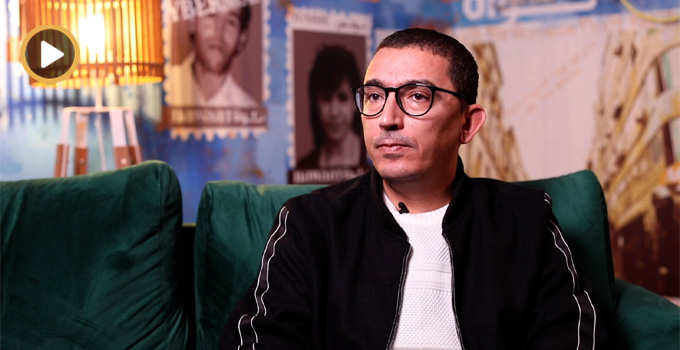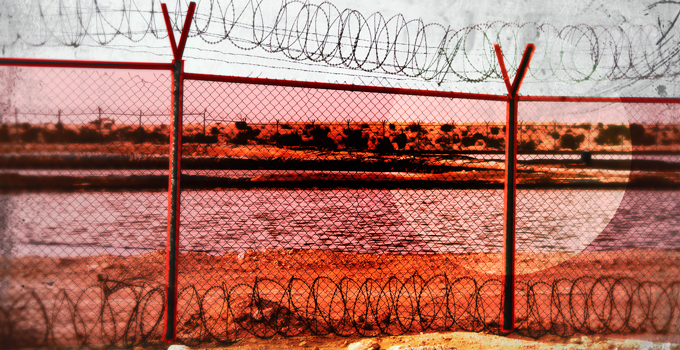
The harvesting process is a daunting one, families spending half a year collecting, heating, breaking and sifting pine cones to extract zgougou. Indeed, they were dire circumstances that first prompted interest in the seed as a food item. Agricultural lands were ravaged during the Mejba revolt of 1864, when Ali Ben Ghedhahem led an uprising in protest of Sadok Bey’s new tax policy; three years of famine followed, driving people to the forests in search of sustenance. Today, zgougou is a regular food industry overseen by the ministries of Agriculture, Commerce and Health. The seeds are sold in bulk by the kilogram or, as has begun in recent years, transformed into a paste and sold in 500 gram tubs, ready to be mixed with flour and sugar to make assida. Although the ingredient is but a flourish in the Tunisian diet, consumed once a year on the Mouled, zgougou harvest is an arduous six-month operation, often involving entire families who camp in the mountains through the winter.
Plenty of seed to go around, but prices on the rise
The Forest Exploitation Agency, a public enterprise owned by the Ministry of Agriculture, is in charge of leasing out forest to independent operators. The Agency’s current director, Mohamed Mokhtar, explains how the land designated for exploitation, some 68 thousand hectares of forest, is divided up according to surveys conducted by each governorate’s Regional Agricultural Development Office (CRDA). A call to tenders is held each year between May and June, and lots are contracted out to the highest bidders for exploitation. This year, Mokhtar reports, about 21 thousand hectares of forest have been parcelled out to some 70 operators who will harvest an estimated 345 thousand tons of zgougou by the end of April. Whatever was not sold this year will provision next year’s supply. With 157 thousand tons of zgougou currently on the market, national demand for the product, around 150 thousand tons, is more than satisfied.

Mokhtar affirms that the Aleppo pine forests throughout the north consistently produce plenty of zgougou to meet the country’s needs. And yet prices for the product over the past couple of years have jumped up significantly. Last December, bulk seed prices hovered around 17-18 dinars per kilogram; this year, the range is 20-22 dinars per kilogram. For many households, the cost for one kilo of zgougou (about the amount required to make assida for one family), not to mention the cost of the recipe’s other, oftentimes more expensive ingredients—is exorbitant. For the second year in a row, the Consumer Protection Organisation (OCD) has called for a boycott on zgougou, reasoning that all Tunisian households, even those who can afford it, should act in solidarity to refuse prices that bare no relation to the cost of production. As Najla Aouinti, communications officer at the ODC, argues, there is no economic justification for such a significant price peak. «It’s not a question of supply and demand », she tells Nawaat. « It’s a question of speculation, of certain intermediaries who take advantage of the State’s disengagement… the weakness of its actions to control the market, the anarchic situation of the distribution system … and subject consumers to unexplained prices ».
The idea behind a boycott is an « equitable distribution of profits behind the added value » of zgougou, says Aounti. She emphasizes that price manipulation takes place at the expense of both ends of the distribution chain: it hurts the consumer, who has seen a 40% decrease in purchasing power since 2011, as well as the harvester who spends the coldest months of the year collecting and extracting and selling the fruits of his labor for precious little compared to retail prices.
Zgougou harvest at Ghosset El Bey
Bechir Mimouni is the director of the Deanship of Forests in Bizerte, where four parcels of land have been leased out for exploitation. Mimouni knows the families harvesting there, and agrees to take us to meet a few of them. From the delegation of Mateur, we follow him 14 kilometers outside of town, just past Ichkeul national park. There is no sign marking the turn-off where we leave the paved road and begin a bumpy ascent around a fallow field and towards the trees. Nearing the hidden side of the mountain, we come to flat, open space: here, scattered across the clearing are five large tents. This is Ghosset El Bey, Mimouni tells us. As he makes a telephone call, half a dozen small faces peek out from one of the tents. One at a time, several men in torn jeans and beanies appear from the forest, and the children, runny-nosed and red-cheeked, emerge from the tent. They wander over, slipping their tiny hands into the soiled, hardened hands of their fathers. The air is cold, biting. But neither fathers nor children seem to notice.
Last to arrive, wearing black rubber boots and hooded sweatshirt, is Ali Mrabti, under whose name this lot of land is leased. Mrabti and the four others are from Makthar, in the governorate of Siliana, and will remain here through the harvest season. They have all come with their families—wives and children, and have also brought along their animals: chickens, dogs and a donkey. From November through April, they are camped here just outside the forest, far from roads, services and schools. The children don’t go to school, says Mrabti, who adds that wolves and wild boars are a constant concern. Mrabti and the others take us around, opening up their tents to reveal mattresses and blankets laid out across the ground and pointing out the edges and corners of tarp where the rain leaks in.
We follow Mrabti towards two piles of cones: those that have been dried and opened, and those just off the tree—compact, purple-green and still full of seeds. One of the men jumps onto a pine close by, climbs easily to the top and starts clipping off cones, which tumble towards the purple-green heap. A few steps away, another man stands before one of five ovens that have been built into the earth. He lifts off a sheet of metal and climbs inside a spacious underground chamber where the cones are heated for two days. Once removed—now brown with their scales opened, from the oven, the cones are struck and their seeds sifted out. Mrabet says that between the five workers and their families, just about a kilo of seed is extracted each day. This year, the trees’ offerings are not so bountiful, a consequence of three consecutive years of drought.
The harvesters at Ghosset El Bey tell us that they sell seed to wholesalers for 10 dinars a kilo, or just about the cost of collection and extraction, according to the Ministry of Agriculture. Sale is arranged before the start of harvest season, the families taking an advance in the summer and receiving full payment once the product is delivered. While the Mrabti family’s income more or less reflects the cost of their labor, at least by official estimates, not all households work on the grid with government-issued contracts for forest exploitation. Many smaller harvest operations sell the fruit of their labor to intermediaries for a pittance. The task of regulating all exploitation operations and distribution circuits remains a daunting task, and in the State’s current incapacity to carry out effective price and product quality control, both the harvester and the consumer suffer the consequences.





iThere are no comments
Add yours